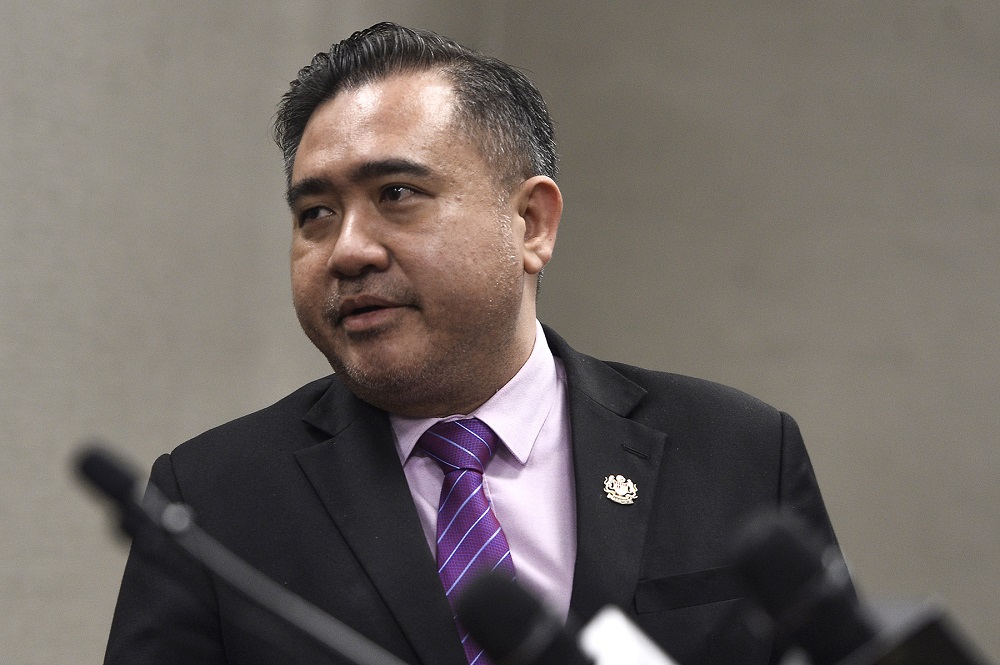KUALA LUMPUR, Dec 29 — Parti Pejuang Tanah Air (Pejuang) may or may not join the “grand coalition” of Opposition parties, depending on whether or not it accepts lawmakers currently aligned with the government but who have ongoing court cases.
Pejuang pro-tem president Datuk Seri Mukhriz Mahathir said the inclusion of rival MPs facing trial or with criminal convictions, or as he called it the “court cluster’, is the chief concern of the yet-to-be registered political party.
“Well if it involves a court cluster, if there is such a group, then we will not be together,” he said on Astro Awani’s Dialog Pembangkang tonight.
However, he said the other Opposition parties have so far shown good faith by saying they would not compromise and accept political leaders with ongoing court cases into the proposed grand alliance.
Parti Amanah Negara deputy president Datuk Seri Salahuddin Ayub, who was also on the talk show, had earlier said the Pakatan Harapan (PH) pact will not compromise its principles and accept the “kleptocratic lot”.

The idea of an Opposition grand coalition was mooted by Pejuang pro-tem deputy president Datuk Marzuki Yahya earlier this month. He urged all lawmakers currently in the federal Opposition to set aside their differences and form a giant collective to go head-to-head with the Perikatan Nasional (PN) government, led by Bersatu president and Prime Minister Tan Sri Muhyiddin Yassin, who is being helped by his former Umno colleagues.
The PN coalition, formed in March, mainly comprises Bersatu and PAS.
However, government politicians have been mulling formalising its own super coalition comprising PN, Barisan Nasional and Gabungan Parti Sarawak which controls the south Borneo state government, in preparation for GE15.
Asked about solidarity within the Opposition after the bloc’s repeated failure to stop PN’s maiden Budget 2021 from being passed in Parliament, PKR vice-president Chua Tian Chang side-stepped. He said the Opposition parties needed to return to the drawing board and seek a common ground.
Chua’s remark was seconded by DAP national organising secretary Anthony Loke, who said the Opposition now needed to determine how to face the upcoming general elections and strengthen its current position.

However, Loke also pointed out that the Opposition bloc is the strongest it has ever been, judging from the 108 seats it collectively has in the 222-member Dewan Rakyat.
He also played down the notion that the Opposition solidarity was tenuous.
“PH fell because of the betrayal of several leaders. During its administration, all component parties discussed and met,” Loke said on the show.
PH had been the original Opposition grand coalition before the 2018 general election when PKR, Amanah, DAP were joined by Bersatu and Parti Warisan Sabah to take on the Barisan Nasional coalition that had run the country for over six decades.
“The PH coalition was good, but unfortunately several individuals turned their back against the struggle. We have to be realistic,” Loke said, referring to the withdrawal of Bersatu and several other MPs from PKR in late February, causing the PH government to collapse.
“If we can bring all Opposition parties into the formal coalition, then that’s ideal. If we cannot, we need to see how to maximise the effectiveness of each party,” he added.
Isnaraissah Munirah Majilis, who represented Warisan on the talk show, said she was not privy to discussions on the proposed Opposition grand coalition.
However, the head of the Warisan women’s wing said those pushing to formalise the Opposition collective must recognise the rights and contributions of their Borneo brethren and accord them equal treatment to those in the peninsula.
For what the proposed grand coalition could offer, Chua said the coalition would be able to offer an inclusive leadership to ensure political stability with immediate reforms to the administration of the country’s health services and addressing unemployment amid the ongoing pandemic.
Salahuddin also expressed optimism and confidence that the grand coalition could garner the necessary public support to overthrow the government should a snap election be called.
Echoing Salahuddin’s sentiment, Loke said Malaysians were now able to assess themselves of the respective ministerial portfolios and their achievements to make an informed decision.
















.jpg)


